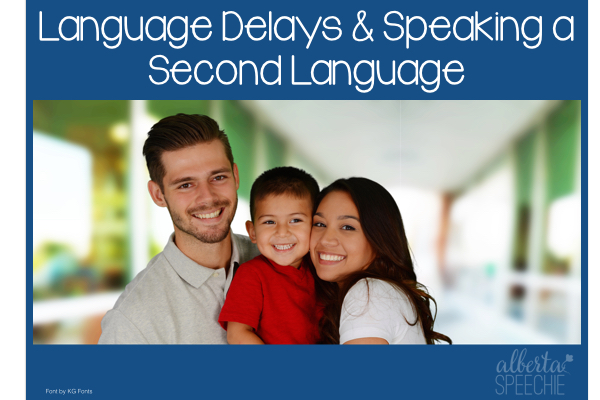At the beginning of the school year, one of the most frequent question parents ask me is “We don’t speak English at home, what language should we use?” or “We speak both English and (insert language here). Should we stop and only speak English?” This is a big concern for parents and often a topic we address and often re-address during therapy. I find that this is a topic where I have to have my “counselling hat” on, have a heart to heart conversation and listen to their fears and concerns for the future.
What should SLPs recommend to families where either they speak two languages in the home or they don’t speak English (or the primary language of the region)? This is not a small issue, some years my caseload has upwards of 60% of the children who are either bilingual or English is not spoken in the home.
I should let you know, I typically do not recommend that a family only speak English or that they should drop their first language and switch to English. I have a few reasons for this:
- Language is strongly tied to culture. These children will be immersed in Canadian English culture but also the culture of their parents. These children need to know how to move in both cultures.
- Children need to communicate with more than just their immediate family. It is not uncommon for grandparents, aunts, uncles and cousins to speak a language other than English. These are important people, that children need to or will want to talk.
- I prefer that children are around strong language models regardless of the language. Parents are the best language models in the language they are most comfortable.
- There is a small but growing body of evidence that says there is no significant differences between children who speak one language with language delays and bilingual children with language delays.
In my experience, families in bilingual homes tend to stay bilingual. Most families where English is not spoken in the home, will continue to speak their language. A small number of families choose to make their homes English only. Another group of families will move between only speaking English and being bilingual or speaking their first language. There is no easy answer for the parents and, at times, for the SLP. I found some wonderful resources that have helped me over the years. My favourite one (and the one that I used to double check my information) is Dual Language Development Disorders 2: A Handbook on Bilingualism and Second Language Learning Edited by Johanne Paradis, Fred Genesee and Martha B. Crago (Paul Brookes Publishing Company, 2011). I don’t have any financial stake in saying this is a great book and have gone back to it many times. What do you recommend in these situation?

